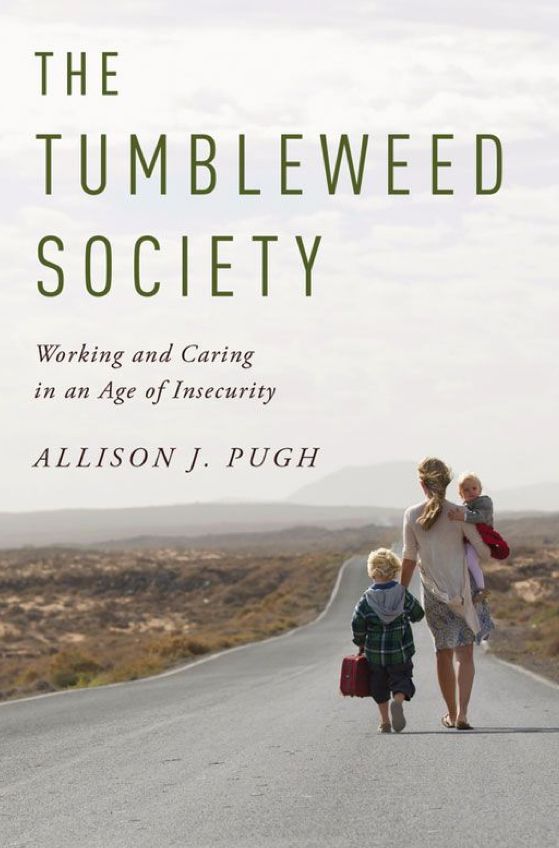• Allison Pugh,
The Tumbleweed Society:
Working and Caring in an Age of Insecurity on Amazon

Needless to say, the plant-people tumbleweed analogy won't parallel perfectly, but it's a colorfully useful image. Living in the southwest, I've seen lots of tumbleweeds, but still needed to learn a little about them. Via wikipedia, here are a few facts:
"A tumbleweed is a structural part of the above-ground anatomy of any of a number of species of plants, a diaspore that, once it is mature and dry, detaches from its root or stem, and tumbles away in the wind. ... Tumbleweed species occur most commonly in steppe and arid ecologies, where frequent wind and the open environment permit rolling without prohibitive obstruction ... Many tumbleweeds are ruderal species, opportunistic agricultural weeds."
Sociology sometimes is a quantifiable soft-scientific discipline that studies, analyzes, charts, and plots. At other times sociologists report in a more essayistic manner, using prose to describe their findings, as Allison Pugh does in The Tumbleweed Society. Our lives are about story, our lives becomes stories, and sometimes a narrative approach like this book uses lines out the truth a lot more clearly than charts, graphs, stats, and percentages do. Given the true employment insecurities many of us already have experienced, and every single one of us knows is out there, no wonder I found this book so interesting! Allison Pugh's writing flows well, without any annoying mannerisms, though I need to comment on what feels like her frequent use of "eschew" and its variants. Who on earth says "eschew"?
Pugh's and her colleagues' one-on-one interviews of and observations about eighty individuals demonstrate that these days job retention and change is mostly related to socioeconomic class, rather than being as ethnicity- or gender-driven as job and career opps were in times past. So we find high employment mobility and high residential relocation rates amongst those with high-end, elite level skills who tend to be sought out, sought after, and routinely draw high income levels. We also find high employment mobility and high residential relocation rates amongst those with approximately high school level schooling and skills.
But The Tumbleweed Society experiences not only "Working," but also "Caring in an Age of Insecurity," as the subtitle describes. Briefly, it seems as if a lot of people are okay with companies they work for having only nominal commitment to their workers' lives while the workers do their best by the company. On the other hand, we find truly dramatic, impressive instances of individuals maintaining "no matter what" commitments to family (parents, offspring, sibling) and significant others.
At any rate, I'd love to read a similar report about a similar population cohort about ten years from now. I also wonder where I'll be working, where you'll be working, if housing and employment will have settled down and stabilized? Or not?
• my Amazon review:
a book almost everyone can relate to
 In the beginning…a small bell chimed
In the beginning…a small bell chimed